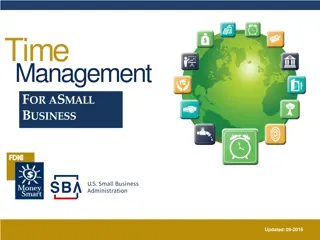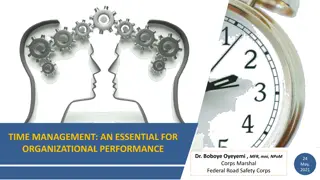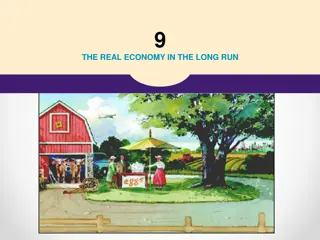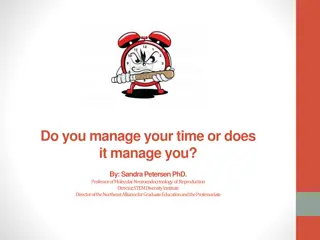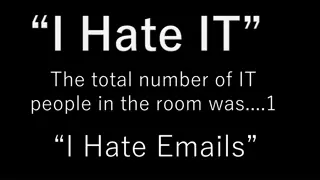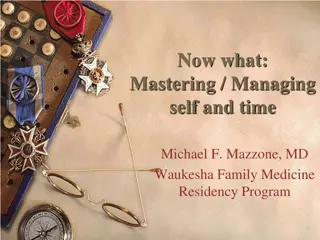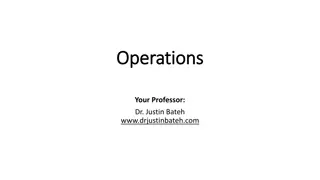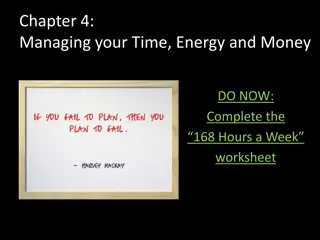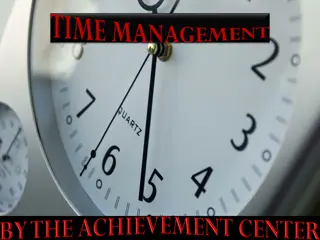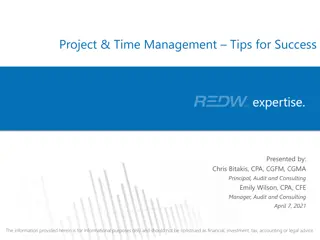Mastering Time Management: Tips and Strategies for Effective Productivity
Learn essential time management strategies from Michele Guerra, MS, CHES, Director of UI Wellness Center. Prioritize tasks, get organized, overcome procrastination, and manage disruptions to optimize productivity. Take the quiz provided to assess your time management skills and discover areas for improvement, such as goal setting, prioritization, managing interruptions, procrastination, and scheduling. Utilize tools like to-do lists, ABC prioritization, and identifying A priorities to enhance your time management skills further.
Download Presentation

Please find below an Image/Link to download the presentation.
The content on the website is provided AS IS for your information and personal use only. It may not be sold, licensed, or shared on other websites without obtaining consent from the author.If you encounter any issues during the download, it is possible that the publisher has removed the file from their server.
You are allowed to download the files provided on this website for personal or commercial use, subject to the condition that they are used lawfully. All files are the property of their respective owners.
The content on the website is provided AS IS for your information and personal use only. It may not be sold, licensed, or shared on other websites without obtaining consent from the author.
E N D
Presentation Transcript
1440 minutes in a day: Managing Your Time Presented by Michele Guerra, MS, CHES Director UI Wellness Center
Steps to managing your time well Prioritize tasks Get Organized Overcome procrastination Let go of perfectionism Manage disruptions Avoid taking on too much
Take the quiz! http://www.mindtools.com/pages/article/newHTE_88.htm
Scoring the quiz Questions Points Questions 2, 5, 10, 11, 12 Points 1, 3, 4, 6, 7, 8, 9, 13, 14, 15 Not at all 1 Not at all 5 Rarely 2 Rarely 4 Sometimes 3 Sometimes 3 Often 4 Often 2 Very often 5 Very often 1 Score Comment You're managing your time very effectively! Still, see if there's anything you can tweak to make this even better 46-75 You're good at some things, but there's room for improvement elsewhere. 31-45 Ouch. The good news: you've got a great opportunity to improve your effectiveness. However, to realize this, you've got to fundamentally improve your time management skills. 15-30
Understanding your score (and improving your time management skills) Areas needing improvement Related questions Goal setting 6, 10, 14, 15 Prioritization Managing interruptions 1, 4, 8, 9, 13, 14, 15 5, 9, 11, 12 Procrastination 2, 10, 12 Scheduling 3, 7, 12
Organizing: The to-do list Helps you prioritize Helps you overcome procrastination It s a critical starting point not a stand alone tool
ABCs to Prioritizing 1. Write to-do list 2. Review list: Break large tasks into smaller tasks 3. Prioritize by ABCs 4. Delegate those tasks more appropriate for someone else 5. Schedule your day (week). Assign a deadline for each task. 6. Consider your daily cycle (most demanding tasks when you are most focused/ energized)
A Priorities Urgent AND important Support a long term goal Support others you work with Ask: What terrible thing would happen if I didn t do this today? Only top priorities get A category
B Priorities Important but not urgent Mild consequences for not doing this (e.g. some may be unhappy or inconvenienced) Time (waiting period) usually elevates to A or drops to C Never do a B task when there is an A task the needs to be finished
C Priorities Not important or urgent Sometimes are not important but are urgent No consequences for not doing this Nice to do
Prioritization Grid URGENT A NOT URGENT B Deadline Presentation tomorrow Scheduled at work Paper due next month Planning Some calls or requests Important Pick child up at daycare Rejuvenation time C C Not important Interruptions Disruptions Some calls Trivia Busy work Time wasters Friend asks favor Gaming, Facebook
Organizing: schedules Get the big picture (semester, work cycle, vacations) Know your schedule (weekly calendar) Determine how much time it takes to complete various tasks (double your estimates) Plan a balanced schedule (fixed and flexible tasks) Identify odd hours and small bits of time plan how you can use them Schedule time for prioritizing Schedule breaks and time for rejuvenation Enter all this somewhere (paper, outlook, phone app)
Overcoming procrastination Recognize that you are procrastinating Evaluate and diagnose your procrastination: e.g. reasons, what parts of the task, Take counter-measures against procrastination: use to-do list break large tasks into smaller parts schedule specific times to do things you are mostly likely to put off address reasons (e.g. don t like the task, hard to start, fear of failure) reward yourself for starting and finishing
More procrastination busting tips Create the Right Environment Set Up the Task Post Your Deadlines Do the Fun Stuff First Start Somewhere, Start Anywhere Beware of Multitasking Know That You Can't Do Everything Perfectly! From ADDitude magazine http://www.additudemag.com/slideshow/99/slide1.html?utm_source=eletter&utm_medium=email&utm_campaign=August
Perfectionism Be aware of your tendencies Take an honest look at how you spend your time Analyze & reframe your self-talk Focus on the big picture Ask what s really needed in this situation? Is perfection necessary or even better? Maintain high but attainable standards Be realistic about what you can accomplish Seek help when needed Don t throw work away replant it
Managing disruptions Disruptions are often urgent (at least in the mind of the person presenting them) but not important Identify recurring interruptions and distractions Keep a log Learn to say no: Be polite but assertive Other tips: Establish available/not available hours, turn off IM Chat; use Outlook to identify uninterruptable time Set limits with necessary interruptions e.g. I have five minutes, I can do this tomorrow
More disruption diffusing tips Remind yourself: Your Availability Your Importance Develop phrases that deflect the Got a minute? intrusion to a later time Use modified open door policy Consider working in another location sometimes Configure your office so your desk faces the door Stand up on the entry of intrusive visitors Schedule meetings in other person s office
Avoid taking on too much Learn to set limits and say no thank you Learn to delegate, share work, let others help
Creating SMART goals Specific: Precise statement of what needs to be accomplished: exactly what are you going do, how much? When? How often? Measurable: Concrete criteria for gauging progress. Helps you manage and evaluate your goal. Attainable: Assurance your goal fits your ability. Something you can accomplish. Not too easy or too hard Relevant: Personalization of your goal. Supports your interests, values, needs and talents. Critical to motivation. Timed: Beginning point and deadlines. Gets your started and keeps you on track.
Final tips Use small bits of time, odd hours, waiting time Handle paper (email, etc.) only once Use automatic systems when possible Get enough rest, eat well, exercise Ask for advice when needed
Make a plan today! Managing your time increases your success In school, at work , in life Managing your time well reduces stress Managing your time well enhances work-life balance The bad news is time flies. The good news is you're the pilot. -Michael Althsuler
Thanks for participating! For more info contact Michele Guerra 244-2205 or mguerra@illinois.edu




